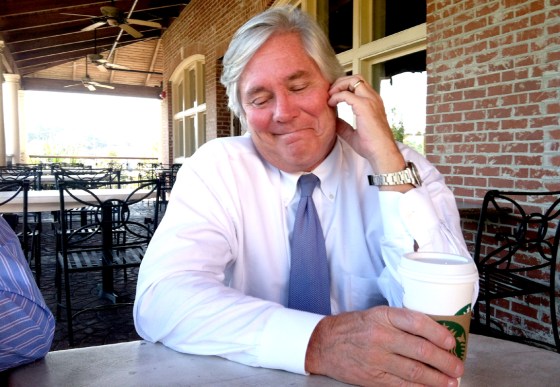Running a bit behind with this, but it was a busy weekend.
As you can see, a good time was had. Particularly by me, what with the honor of riding on the official Yesterday’s float. My first time on an actual float in an actual parade.
They issued me a green cowboy hat, but it was too small, and I was already wearing a hat, so I used it to wave with.
Turns out that early is the time to go. It wasn’t as hot as later, and you miss a lot of the crowd. I was a bit concerned at what I perceived as low turnout, but Scotty at Yesterday’s said, wait until about 2. I left a little before that, and the mob waiting to get in was impressive. The crowd was later estimated at 40,000.
Among all of them, I only ran into one person who I actually knew was Irish, as in personally from Ireland — Jerry Hackett, who teaches philosophy at USC. He and Bud Ferillo were sitting out in front of Starbucks. I joined them for a bit and we talked about the new Pope, which seemed the thing to do while celebrating a saint’s day.
Speaking of philosophy, I heard a pearl or two from the mouth of Cedric the cowboy as I stood next to the bathtub from which he waved. For instance, as he looked out on the sea of green-clad folk, he wondered aloud, “How come on St. Patrick’s everybody wants to be Irish, but on Martin Luther King Day, nobody wants to be black?” I’m not sure what it meant, but that was the only thing I actually tweeted out from the float.
I got a bit sunburned and my famous gigantic hornrim glasses got broken. No, I didn’t get into a brawl. And I had not so much as touched a drop. It was right after the parade, as I was re-entering the festival area; I was trying to remove my green sweatshirt and my glasses flew off and hit the pavement, and I saw one lens go skittering off down the street. I sort of repaired them with some tape from behind the bar at Yesterday’s, but it might be time to invest in some new ones.
So when you next see me, I might look different…
- With Keely Saye, who was in charge of our float.
- A cowboy-eye view.
- My daughter shot this as I passed where she and the twins were watching.
- As our float arrived at the heart of Five Points itself.
- The view from the float as we pulled into Five Points.
- People laughed and waved when they saw the live cowboy in the tub.
- My smashed glasses, repaired with tape.
- One of the many who was too young to get a pink armband. But he passed out anyway.
- This is the crowd that was waiting to get in just before 2 p.m., as I was leaving. This queue stretches across Blossom and well up Saluda.




























